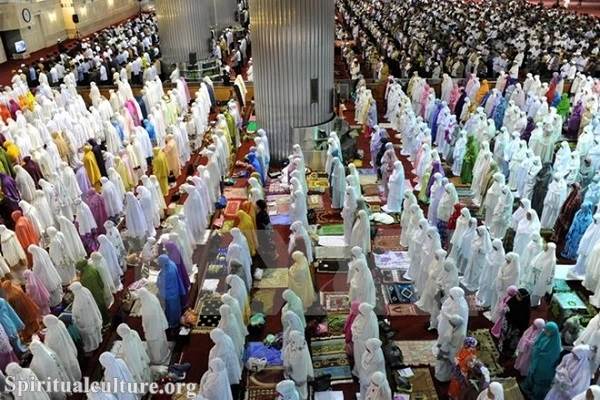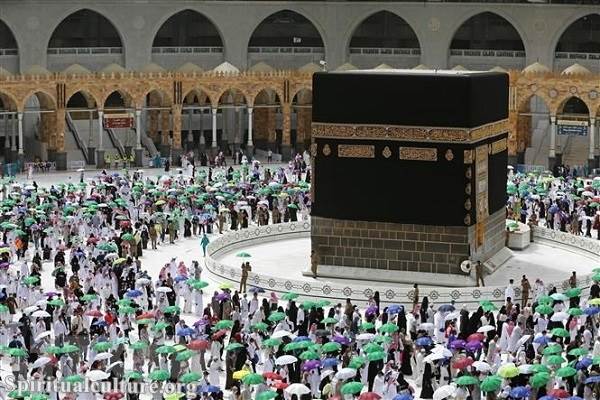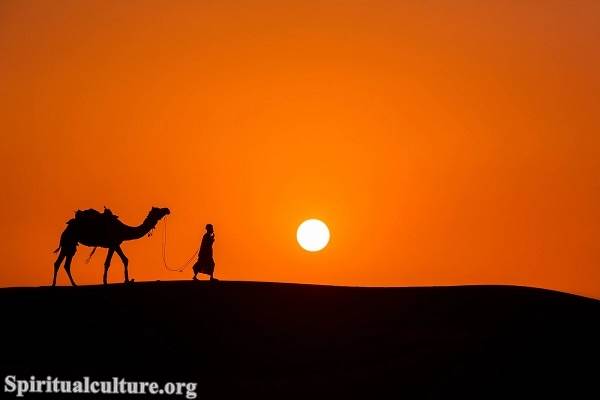The 5 pillars of Islam are the five main religious obligations that are mandatory for Muslims to fulfill. Here are details of the Five Pillars of Islam:
1. Shahadah in Islam
The Shahadah is the first of the Five Pillars of Islam and is the Islamic Creed. It is the declaration of faith that states: “There is no god but Allah, and Muhammad is the messenger of Allah.” This declaration of faith is considered the most important aspect of Islam and is required of all Muslims. It is a simple yet profound statement that affirms the belief in the oneness of God and the belief in Muhammad as God’s messenger. By reciting the Shahadah, a person declares their submission to the will of Allah and their acceptance of the religion of Islam.
The Shahadah is a central part of the Islamic faith and is the first thing that a person says when they convert to Islam. It is also a daily declaration that is recited by many Muslims as a part of their daily prayers. In addition to declaring their faith, Muslims who recite the Shahadah also commit to living according to the teachings of Islam and striving to follow the example of the Prophet Muhammad.
The Shahadah is a powerful statement that affirms the belief in the oneness of God and the belief in Muhammad as God’s messenger. It is a declaration of faith that is required of all Muslims and is an essential part of the Five Pillars of Islam.
2. Salat in Islam
Salat, or ritual prayer, is the second of the Five Pillars of Islam. Muslims are required to perform salat five times a day: at dawn, noon, mid-afternoon, sunset, and evening. Salat involves facing towards the Kaaba in Mecca and reciting certain prayers and passages from the Qur’an.

It is a time for Muslims to connect with God, thank him for his blessings, and seek his guidance.
3. Zakat in Islam
Zakat is an Islamic principle of giving a fixed portion of one’s wealth to those in need. It is one of the Five Pillars of Islam, considered an obligation for all Muslims who are financially capable.
The exact amount of Zakat required is 2.5% of one’s total savings, but it can vary depending on interpretation. It is intended to promote equality and alleviate poverty in society and is seen as a form of purification and spiritual growth for the giver.
In addition to financial wealth, Zakat can also be paid for agricultural produce, minerals, and livestock, among other things. It is generally distributed to eight specific categories of recipients: the poor, those in debt, those struggling to make ends meet, those working to spread Islam, travelers in need, administrators collecting Zakat, and those whose hearts need to be won over to Islam.
The idea behind Zakat is to provide support for those in need and to promote social justice, and it is considered a means of purifying one’s wealth and an act of worship. It is a personal responsibility for each Muslim to calculate their own Zakat and give it directly to those in need, rather than through intermediaries.
Observing Zakat is seen as a way to demonstrate one’s obedience to Allah and devotion to Islam, and is considered a way of balancing material and spiritual pursuits in life.
4. Sawm in Islam
Sawm (fasting) is one of the Five Pillars of Islam and a religious obligation for Muslims. It involves abstaining from food, drink, and other physical needs from dawn until sunset during the month of Ramadan. Fasting is seen as a means of spiritual purification and a way to demonstrate solidarity with those who are less fortunate. It is also believed to increase one’s empathy and self-discipline. The fast is broken each evening with a meal called Iftar.
In addition to physical fasting, Sawm also involves abstaining from negative behaviors such as lying, gossiping, and arguing. Muslims are encouraged to focus on their faith and engage in acts of charity during this time. The fast is a time for reflection and increased devotion, and is seen as a way to come closer to God.
Breaking the fast is an important part of the Sawm experience, and is usually done with family and friends. Dates and water are traditionally the first things consumed, followed by a larger meal. Iftar is a time of celebration, community, and sharing.
At the end of Ramadan, there is a major celebration called Eid al-Fitr, which marks the end of the fasting period. It is a time of feasting, gift-giving, and coming together with loved ones.
In summary, Sawm is a central aspect of the Islamic faith and a time of spiritual renewal and growth. Through fasting and increased devotion, Muslims strive to become better people and strengthen their connection to God.
5. Hajj in Islam
Hajj is one of the five pillars of Islam and is an annual pilgrimage to the holy city of Mecca in Saudi Arabia. It is a religious obligation that every able-bodied Muslim must perform at least once in their lifetime if they can afford it.
During the Hajj, pilgrims participate in a series of rituals, including walking seven times around the Kaaba, running between the hills of Safa and Marwa, and standing in the plain of Arafat. The Hajj is a demonstration of the unity of the Muslim community and an expression of submission to Allah. It is a time of reflection and devotion and is considered a source of blessings and forgiveness.

The Hajj culminates with the celebration of Eid al-Adha, which marks the end of the pilgrimage and is a time of feasting, rejoicing, and giving to the less fortunate.
The Hajj is a deeply spiritual and meaningful event for Muslims, as it allows them to retrace the footsteps of the Prophet Muhammad and the earlier prophets and renew their commitment to their faith.
The Hajj serves as a reminder of the essential teachings of Islam, including the oneness of Allah, the importance of compassion, and the need to live a virtuous life. It also promotes solidarity among Muslims and encourages them to work together for the good of their communities and the world.
Through this article, you must have found the answer to the question, “What are the five pillars of Islam?”. Those are the 5 pillars: Shahada, Salat, Zakat, Sawm, and Hajj.


